Humans
Sign up for our newsletter
We summarize the week's scientific breakthroughs every Thursday.
-
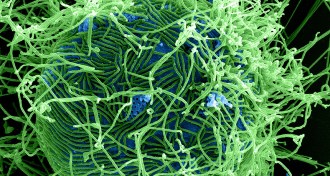 Health & Medicine
Health & MedicineNew cases of Ebola emerge in Liberia
Liberia has recorded three new Ebola cases after being declared free of the disease in May.
-
 Life
LifeAge isn’t just a number
Getting old happens faster for some, and the reason may be in the blood.
-
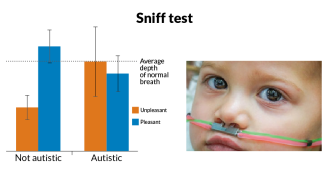 Health & Medicine
Health & MedicineSmell test may detect autism
A quick sniff test could reveal whether or not a child has autism, but some scientists have doubts.
By Meghan Rosen -
 Health & Medicine
Health & MedicineE-cigarette reports provide science that society craves
Research on vaping fills a crucial need in science’s service to society: providing the best information possible in a timely manner, so people can make wise choices.
By Eva Emerson -
 Life
LifePuzzling cosmic signals, processed food defined and more reader feedback
Readers sort out a definition for processed food, discuss the benefits of tinkering with human DNA and more.
-
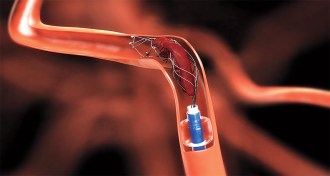 Health & Medicine
Health & MedicineClot-snatching stroke treatment gets the green light
Snatching blood clots from the brain with a wire mesh stent is a new stroke treatment that is now supported in the United States.
-
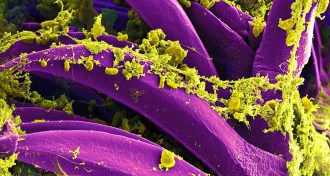 Health & Medicine
Health & MedicineGenetic tweak turned plague bacterium deadly
Two genetic changes allowed plague bacteria to cause deadly lung infections and pandemic disease.
-
 Health & Medicine
Health & MedicineE-cigarettes proving to be a danger to teens
E-cigarettes have surpassed cigarettes as the most commonly used tobacco product among teenagers. Medical researchers are sounding the alarm.
By Janet Raloff -
 Science & Society
Science & SocietyNo matter the language, disease risk is hard to communicate
Reassuring messages about MERS might seem designed to stop panic. But in reality, people need to hear the truth, even if it’s uncertain.
-
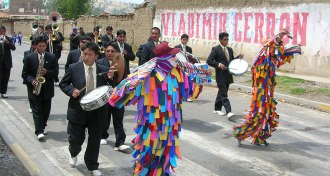 Psychology
PsychologyMusic to just about everyone’s ears
Common elements of music worldwide point to its central role in group cohesion.
By Bruce Bower -
 Health & Medicine
Health & MedicineShould you eat your baby’s placenta?
More women are choosing to eat their baby’s placenta after giving birth, but the evidence for benefits isn’t there yet.
-
 Plants
PlantsPoppy yields the final secret to making morphine
Scientists have successfully transplanted most of the morphine synthesis pathway from poppies to yeast. Now the final step is ready to be put in place.